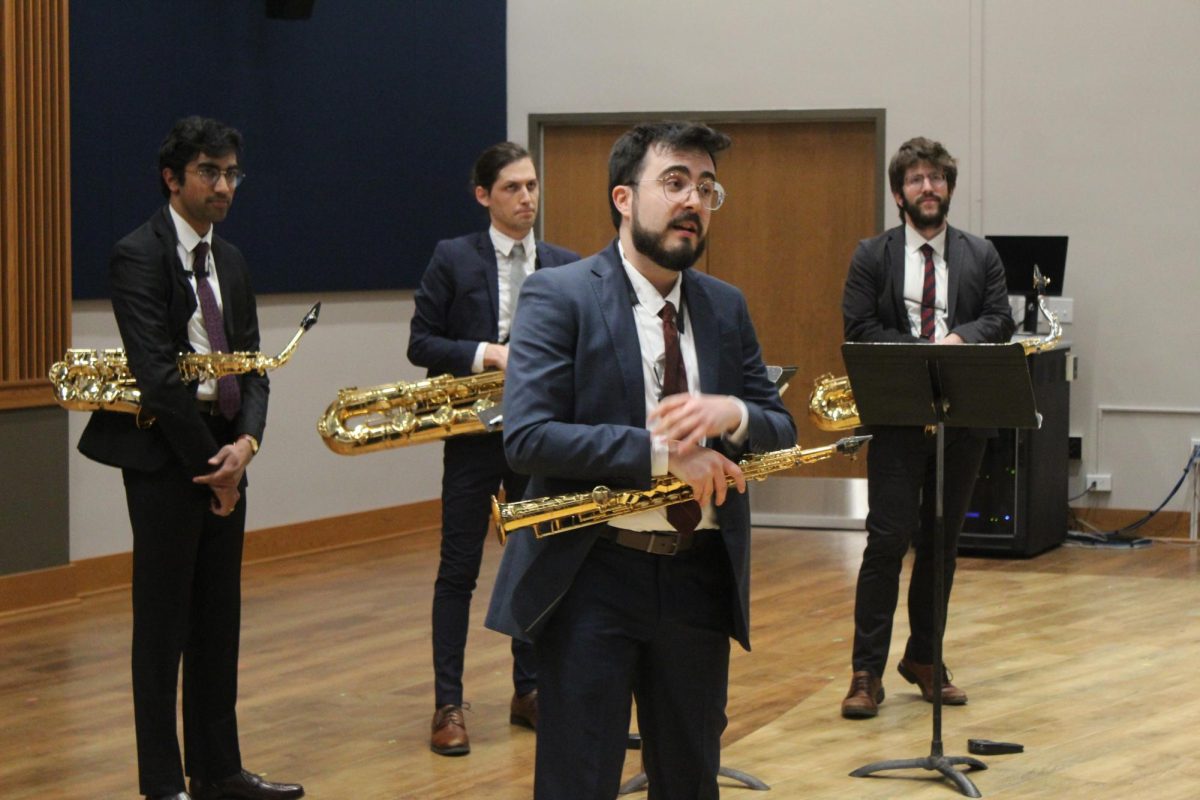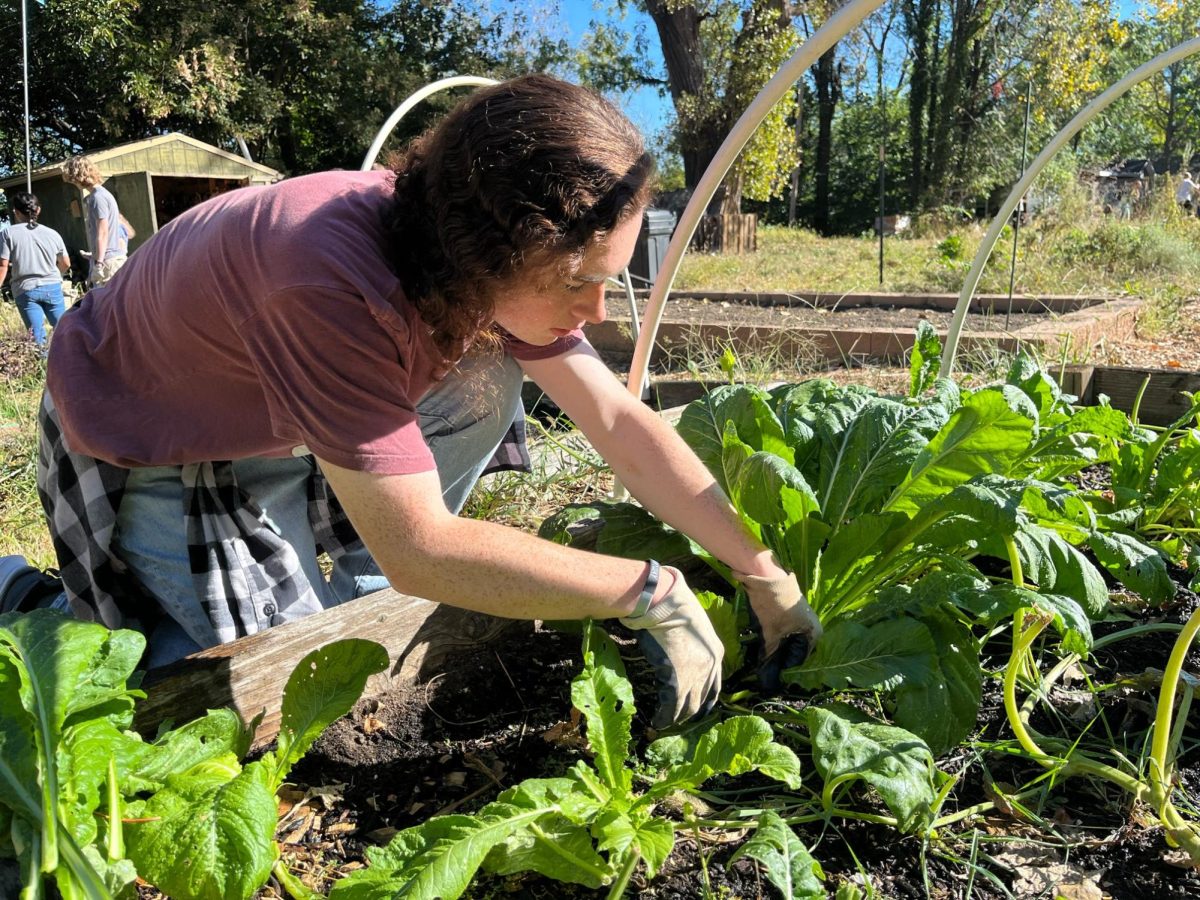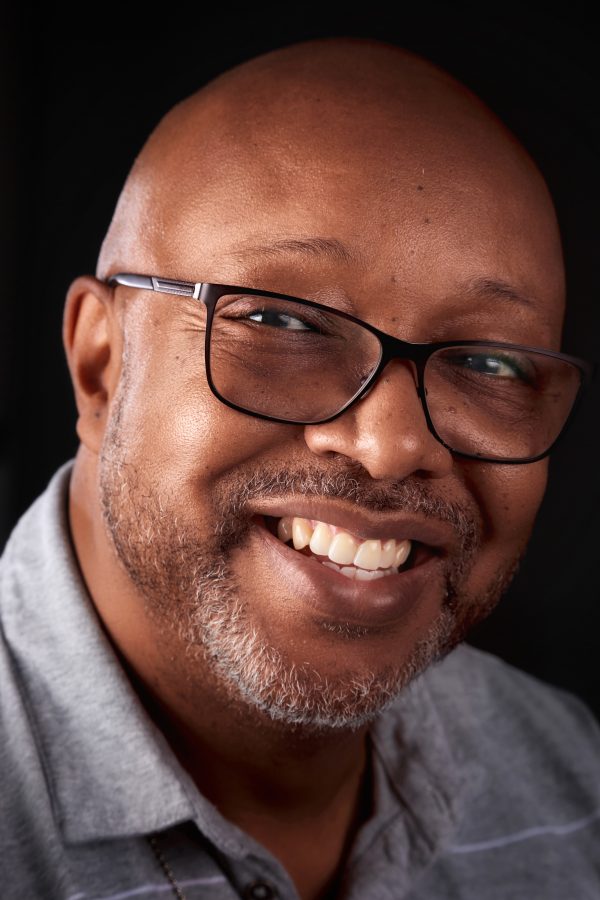Leonard Pitts Jr. is a columnist for the Miami Herald. He is the author of three novels, with a fourth coming out in February 2019. He writes about politics and racial violence in America and his columns have netted him death threats, wide acclaim, and the 2004 Pulitzer Prize for Commentary. Pitts visited Augustana for Fall Symposium Day 2015, and will return as a featured speaker on Sept. 27. In a phone interview, he spoke to the Observer about his writing, his experiences with death threats, and what it means to be a journalist in the current era.
In September 2015, you made the speech “How to be Decent and White in an Era of Black Rage” here at Augustana. What will you be speaking about this time?
The speech takes its title from a speech given by Fanny Lou Hamer in 1964. She described the difficulties and the violence she had to endure while trying to redeem her right to vote and she said, “I question America,” which was a very powerful statement and also comes out of this whole history of African Americans who have been estranged from the country of their birth. So I’ll be talking a little about the disconnection that Africans Americans feel to this country, from her to Freddie Douglas before her to Colin Kaepernick after her. And I’ll be filtering that through Ta-Nahesi Coates’s book [Between the World and Me, the 2018 Augie Reads book], and also through a couple of my books.
What are three things you hope to achieve with every column you write in the Herald?
I don’t spend a lot of time worrying and making lists of what readers would take away from the column. I just hope to analyze whatever the issue is in an insightful way. It’s not so much about crafting an argument as it is to about creating a feeling of some place or something. It all depends on what the column is. If something is very frustrating you write a column just to vent.
One column that got a lot of attention was your piece “We’ll go forward from this moment”, written right after 9/11. What went through your mind as you wrote that column? Would you phrase anything differently now?
Well, I had a deadline that day, and I had planned to write a column about Andrea Yates, a mother who had drowned her five children. By the time I got to my office to write, the whole world had turned upside down, and I realized two things very quickly: the first was that I still had a deadline to meet, and the second was that nobody cared about Andrea Yates anymore. So I sort of wrote on the fly as I was watching the image of the Towers falling on the television across the room.
In terms of what I would say differently—most of it I would still say, but I would probably be a little more cynical about the state of the American family. I described a big and fractious family, and I believe the fractiousness of the family is more pronounced now than it’s been since the 1960s.
You write a lot of political commentary about what’s happening in the US right now. In your years of covering the situation, what has changed with each administration? Like the current Trump administration versus the Obama administration, what has changed in those two eras?
Pretty much everything. I think we are in a period where forces of oppression return after having lost ground. These forces—racism and sexism—that some of us thought had been banished—have returned to the fore, with more strength and frankly more self-satisfaction and pride than we’ve seen in a long time. It’s worth noting that Neo-Nazis marched in Charlottesville last year and they did this without being specifically condemned by Donald Trump, who said there were “good people on both sides.” As Barack Obama said last week, how hard is it to say that Nazis are bad? But suddenly it’s a difficult thing to say and that to me speaks volumes about where we’ve come as a country.
Speaking of Neo-Nazis, they made threats against you back in 2007, didn’t they? Can you describe what that was like?
Of course it was an unpleasant experience, to have guards around all the time and all, but at some point I came to grips with it. What was for me was one of the most traumatic times of my life was what other people called a Tuesday, which put it into perspective..
How did your family deal with the possibility that they became targets because of the work that you did?
My wife dealt with it a lot better than I did. I was never worried for myself, I was worried for them, and they were never worried for themselves, they were just angry. I considered moving somewhere else, because they put our contact information out into the world, and my wife was having none if it. She was ready to fight.
Was there ever a time, after this experience or later on, when you considered not being a journalist?
No.
In your last piece for the Herald you commented on Pulitzer-winning journalist Bob Woodward’s book “Fear.” Do you think there’s a difference between a publication by a journalist and a publication by any other professional?
Sure. There’s a level of professionalism there that you’re not going to find in the work of somebody who doesn’t have Woodward’s credibility and his background. And that makes it that much harder for those who would like to ignore it to do so. There are people who write books because they are former insiders or whatever the situation is, but with a journalist of Woodward’s stature, the reader can trust that the information they’re receiving has been vetted and checked and comes from a recorder who knows how to tell a story.
In the context of all the mass social movements we’ve seen recently, like #MeToo and protests against gun violence, there’s sometimes a sense that the media is taking polarizing sides. Do you think that as a journalist you’ve got a responsibility to champion causes like that, or do you stay impartial?
I’m a columnist, so I’m by definition not impartial. If a cause inspires me, or if I feel like I can bring somebody’s attention to it, then I’m going to do that.
And would you say that your current cause is the way that racial injustice has kept playing out in different ways in the US?
That’s an ongoing cause for me. That’s always going to be something I’m writing about and dealing with.
Has there ever been a story or an issue that you wanted to write or pursue, but didn’t?
No, not really. There were definitely stories I didn’t cover because I didn’t feel like I could do justice to them, but there was no situation where I wanted to write a story and was warned off or scared off.
Any specific examples of stories you felt you couldn’t do justice to?
Climate change. I never really felt I knew enough about climate change to really do it justice, although I think that’s changing.
So in the context of Hurricane Florence in the Carolinas and Typhoon Mangkhut in the Philippines, would that be something you would consider writing on in the future?
In terms of global warming and climate change? I might write something about them, but again, I’d have to make sure I was informed and knew what I was talking about before I could step out with an opinion.
Did you ever consider leaving the US and covering stories in a different part of the world?
No, not at all. I’m not finished covering the United States. There’s so much going on right here that’s unsettled and unresolved, that I’ve never had any compulsion to walk out and cover Canada’s problems or Britain’s problems.
What do you hope to see from the upcoming generation of journalists?
I’d hope to see the same things that have always made journalism great – commitment to telling the stories that need to be told without fear or favour. I hope they figure out a way to monetize the daily newspaper so they don’t have to stay within the institution itself, they can relocate its functions somewhere else, in a way that’s cost-effective. Other than that, I think journalism is journalism down through the years. It doesn’t matter which generation you come from.
What advice would you give students covering their college newspapers that you wish you’d been given when you were starting out?
Well, I’d tell any journalist or anyone entering the field of writing to master their craft and be persistent. A lot of times people come into this position not particularly well prepared and not really understanding what it takes to tell a story. It would be beneficial for young people entering this field to know what they’re doing – to understand the language of it, how to conduct an interview, how to do all the things that make you a good journalist. It would also be good for them to master multiple platforms – we spoke a moment ago about the daily paper, which is in a slow, agonizing death spiral. So they should be able to take those values and transplant them into the tabloid and what comes after the tabloid, and to be able to tell a story using those tools rather than anything I ever had at that age.
Categories:
“Telling the stories that need to be told without fear or favor”: Leonard Pitts Jr., Symposium Day featured speaker, discusses journalism in 2018
September 20, 2018
0
Tags:
More to Discover











































































































